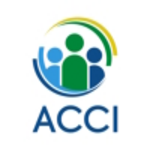
2024 Annual Conference
May 21–23, 2024
Hyatt Regency Milwaukee, Milwaukee, WI, USA
IMPORTANT NOTICE: The date, time, and room assignment of YOUR presentation is SUBJECT TO CHANGE.
Proposal authors can use this tool to see where they have been placed in the program agenda for an Oral or Poster Session.
Scroll down to search by the Submitter or Author Name, by Date/Time, or by Keywords.
Confirm your place in the schedule by following the instructionss that were emailed to you. Each presentation must have a separate paid registration. Contact the ACCI office immedicately by email at admin@consumerinterests.org to report any conflict, all corrections to the details of the presentation (including author names and the order they are listed as this is how it will be in the final program), or if you have any questions. Please be sure to reference the session title(s), date(s), and time(s) when you contact us.
E1c Financial Knowledge, Financial Behaviors, and Pandemic Resilience: A Study in Latin America Amidst the COVID-19 Period
Short Description
Governments worldwide conceive financial education as a crucial tool for enhancing the financial well-being of families. However, the relationship between financial knowledge and financial behaviors remains inconclusive, particularly in developing countries where a limited number of studies have explored this connection. This study employed a subjective and an objective measure of financial knowledge and assessed 16 financial behaviors of participants from Argentina, Colombia, Ecuador, Mexico, and Peru. Out of these 16 financial behaviors, 14 have a relationship with at least one of the two measures. This study found positive correlations between financial knowledge and various financial behaviors, including planning behaviors, acquisition of formal financial products, willingness to assume risks, seeking financial advice, and cautious management of their financial products. The identification of causal relationships proved challenging and often yield inconclusive results due to identified endogeneity issues and the presence of weak instruments. In general, during the COVID-19 period, participants displayed increased prudence in their financial practices and managing their products. This relationship was stronger among participants with higher levels of objective financial knowledge.
Type of presentation
Accepted Oral Presentation